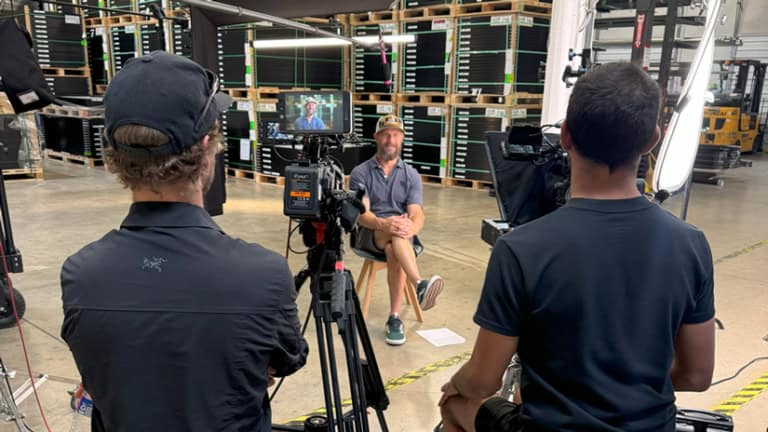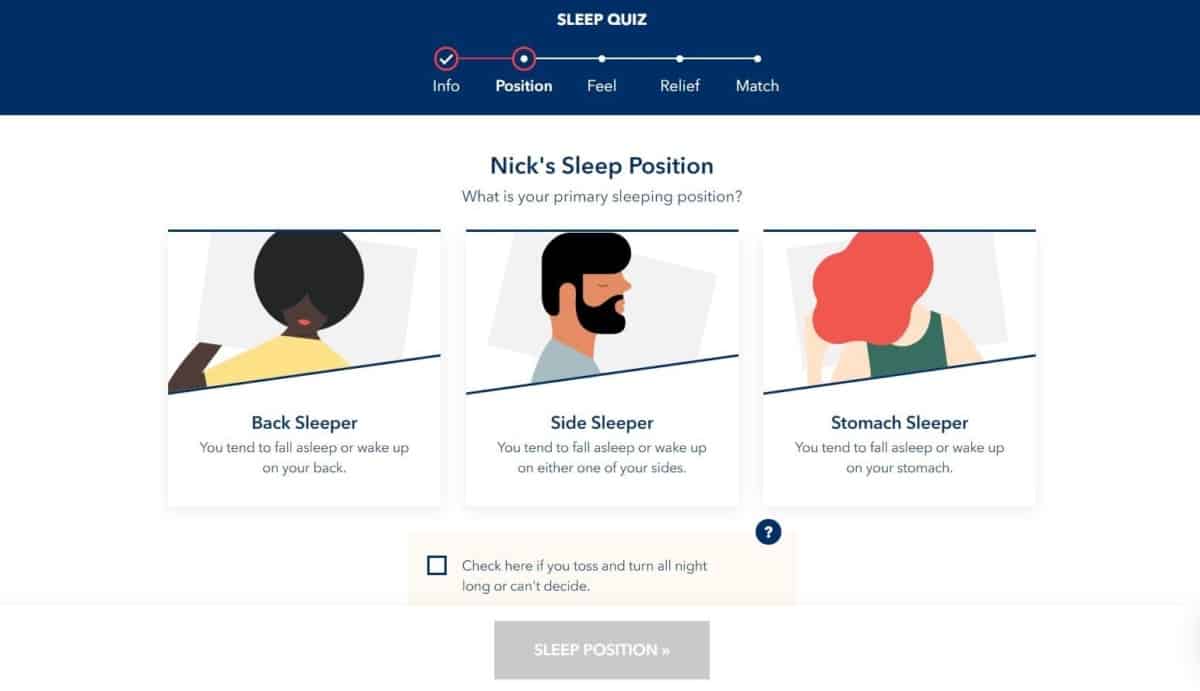
The No. 1 rule in lead generation is that you have to offer something valuable if you expect any users to give up their information.
Enterprise software companies often solicit emails in exchange for access to whitepapers. E-commerce companies promote discount codes and product pre-sales in order to grow their email lists. And then there are consumer products companies that have become adept at creating quizzes to expand their purchase funnel.
Interactive quizzes can serve a lot of purposes beyond just lead capture:
- Provides valuable consumer insights
- Gives companies an opportunity to reinforce their brand identity and product differentiation
- Improves word-of-mouth marketing
- Enables companies to segment their lead list
Buzzfeed may have soured you on gimmicky online quizzes, but studies show that quizzes have an average 33.6% lead capture rate. In other words, they’re effective.
Below we analyze quizzes from The Pillow Guy, Helix Sleep, Beardbrand, and Proven Skincare to learn more about their lead generation strategy.
Pillow Guy
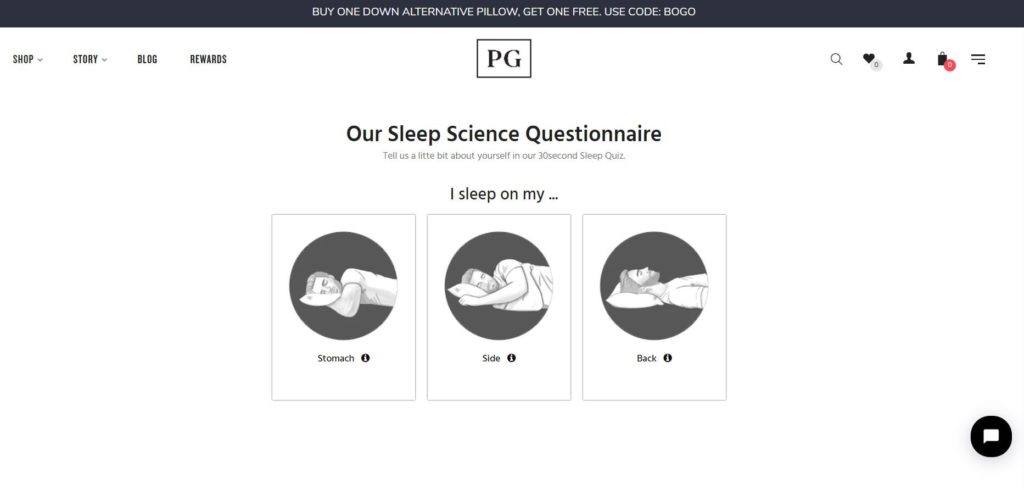
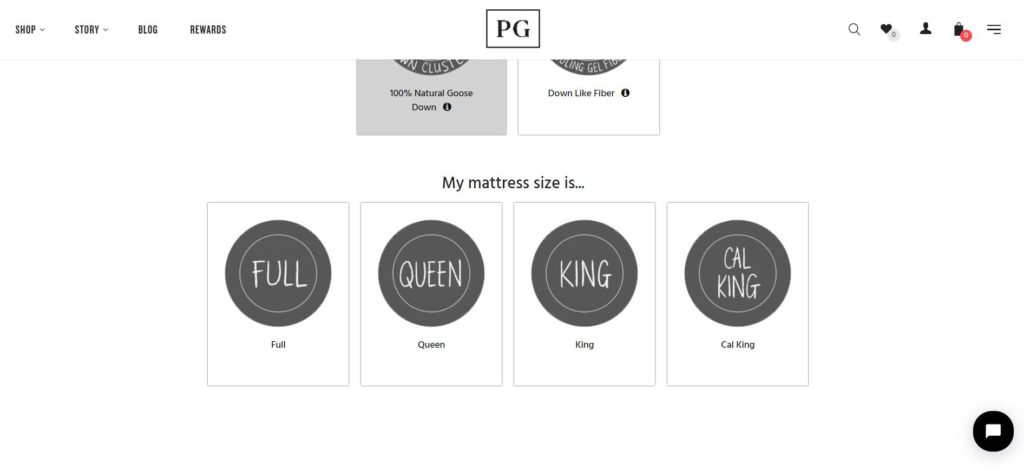
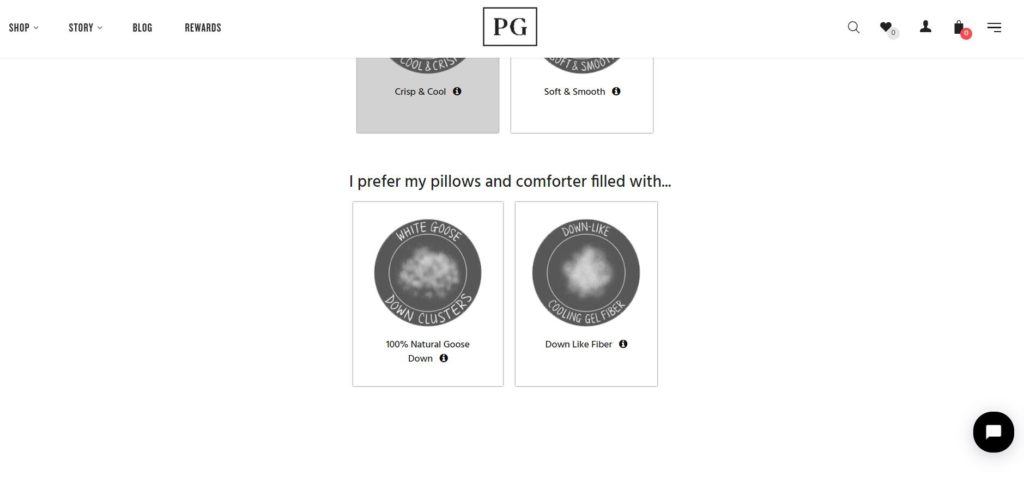
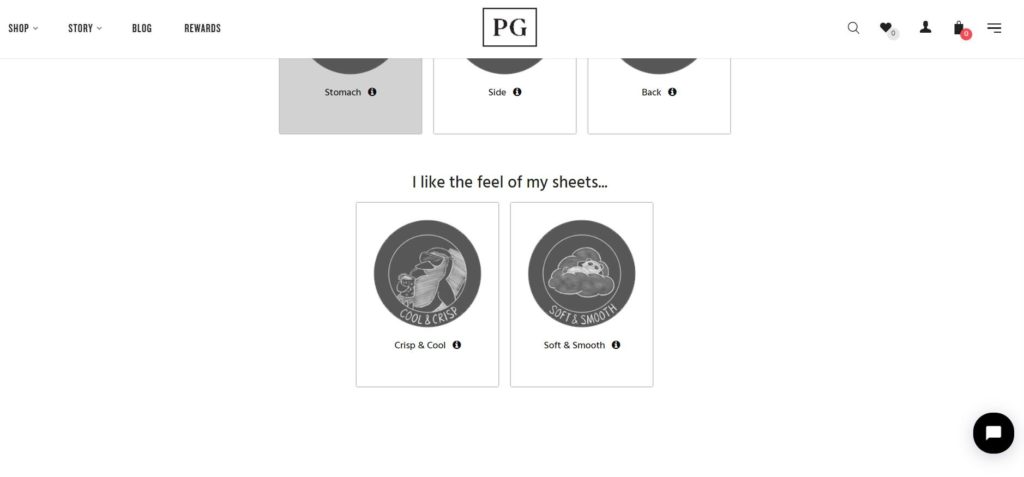
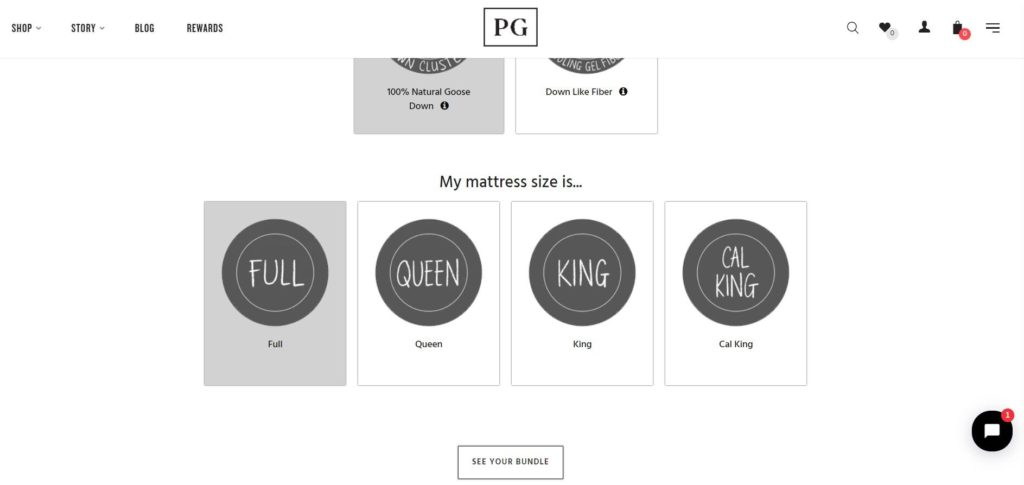
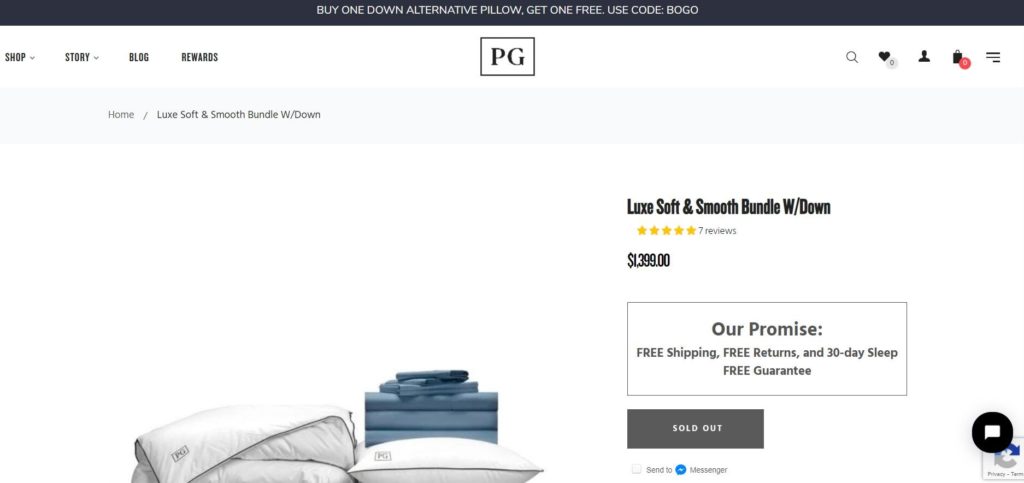
Pillow Guy is a luxury bedding company that created a sleep science questionnaire for online sales, marketing, and product research purposes. Users answer four questions, and then they’re referred to the bedding bundle that best fits their preferences.
Interestingly, there is no email capture throughout this process, but on the page that shows your bedding bundle, there is a popup that plugs a 15% discount code on your first purchase, but you need to enter your email to receive the code.
This quiz is effective for methodical buyers who may not know which product is right for them. Also, Pillow Guy can utilize the data from the quiz to build audience cohorts to customize their marketing efforts. They can also use the data to inform their future product roadmap.
Helix Sleep
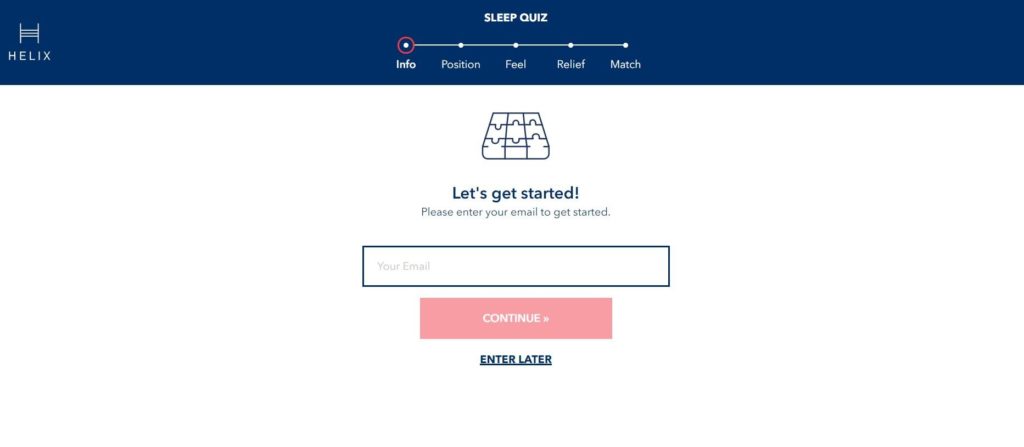
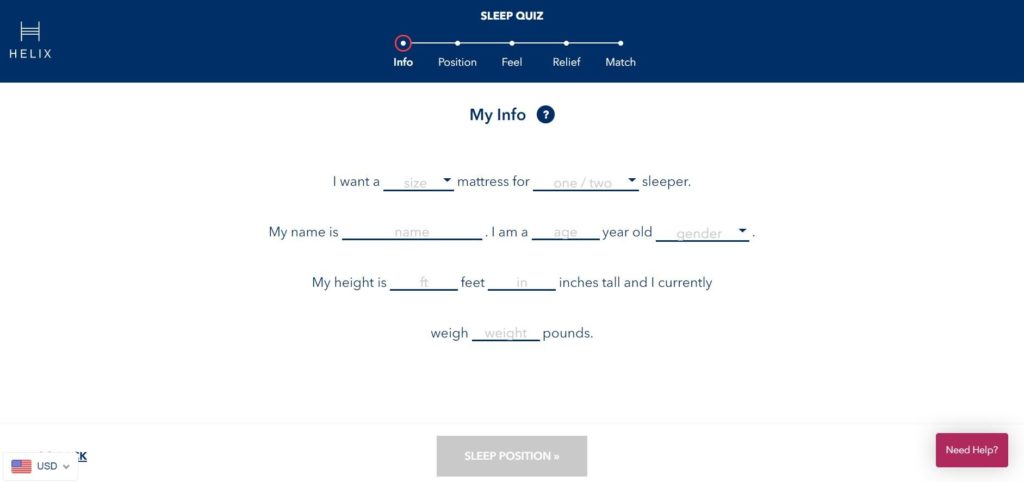
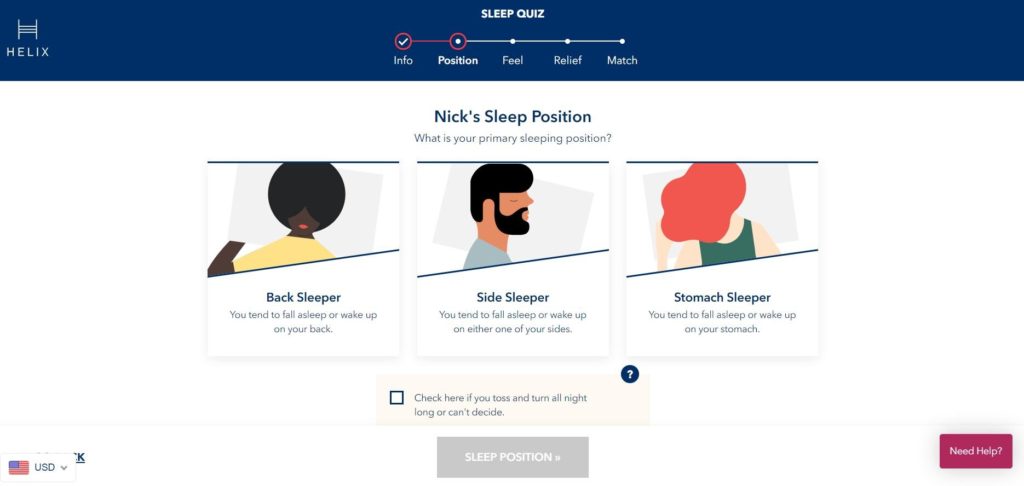
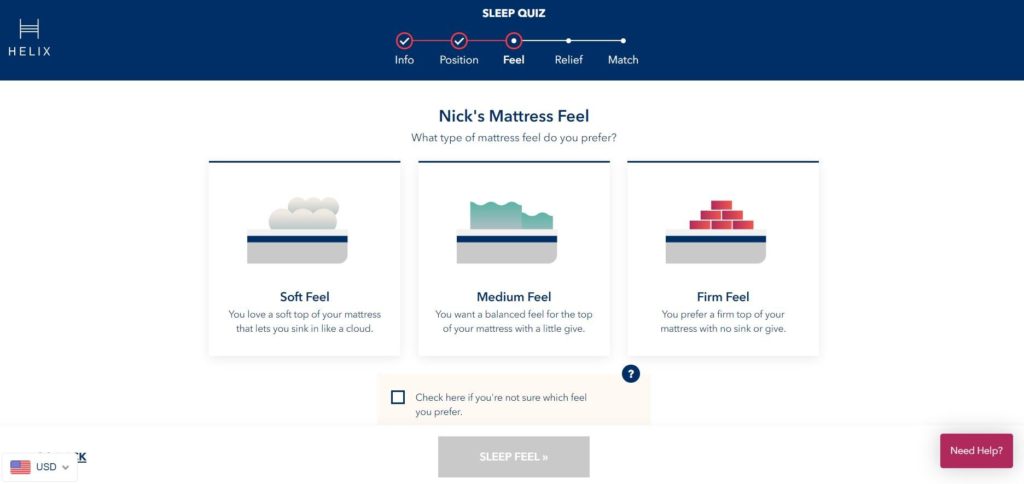
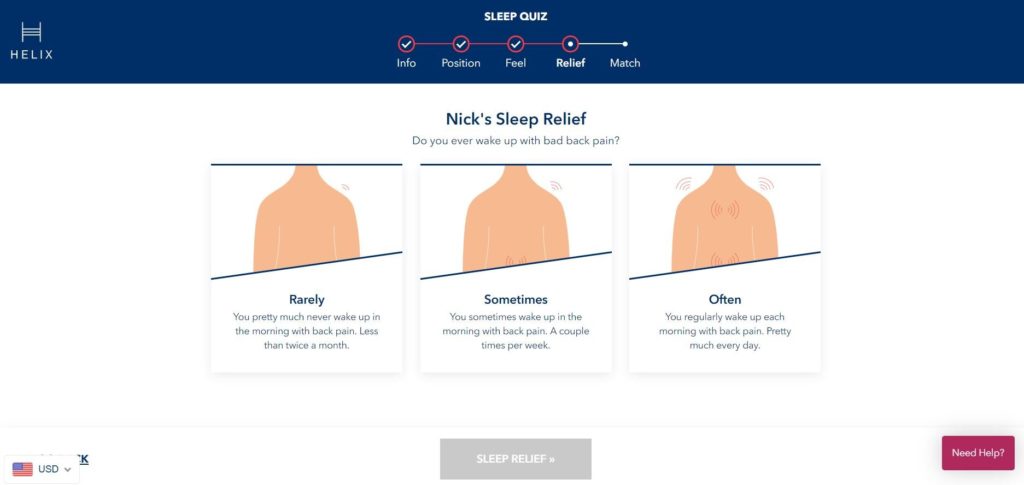
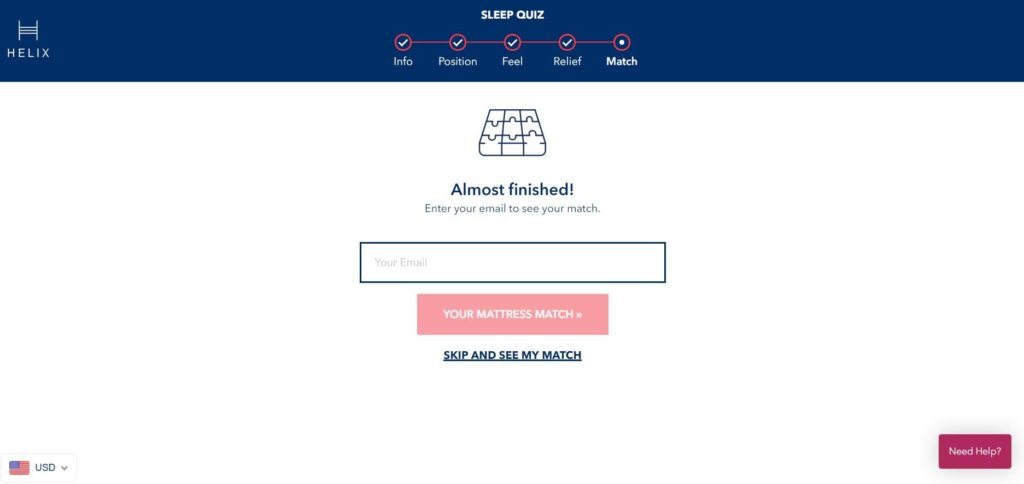
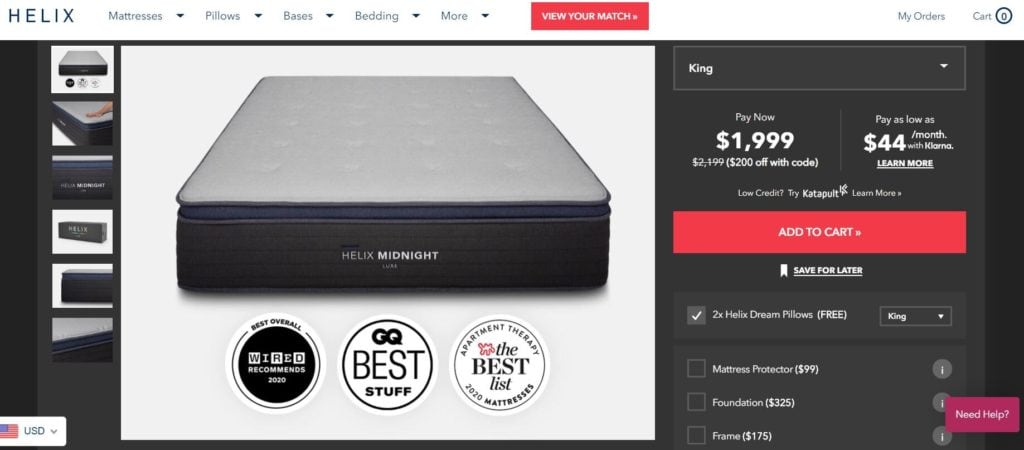
Helix Sleep sells personalized mattresses online, and they utilize a sleep quiz to help users find a mattress that best fits their needs. It’s basically the online version of what you might experience if you visited a mattress showroom at a retail location, except you can’t test out the mattresses.
Overall, the quiz serves many of the same purposes as Pillow Guy’s questionnaire, but there are a few key differences:
- Helix Sleep solicits emails from users at the beginning of the quiz and at the end of the quiz before you see the results. But users are not required to provide their emails in order to proceed.
- Helix Sleep removed the site navigation from their quiz to minimize funnel leakage.
Beardbrand
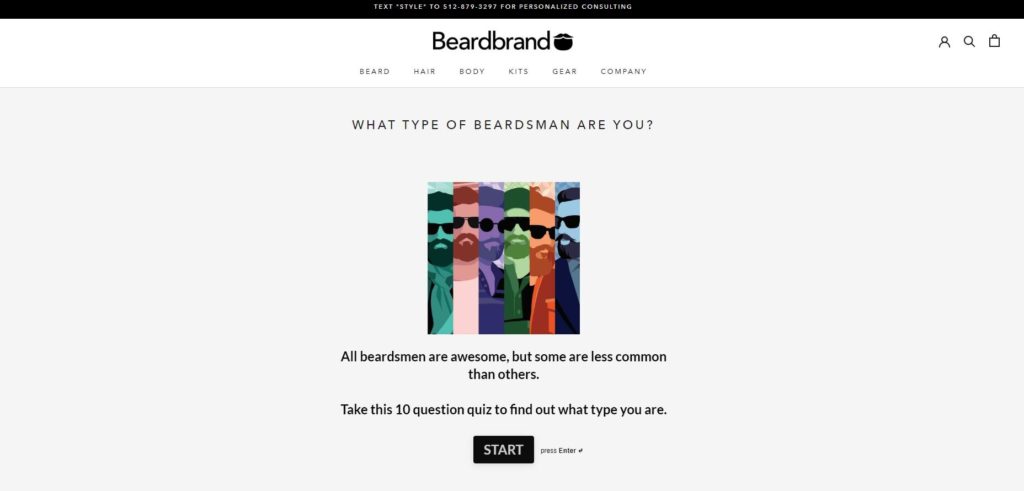
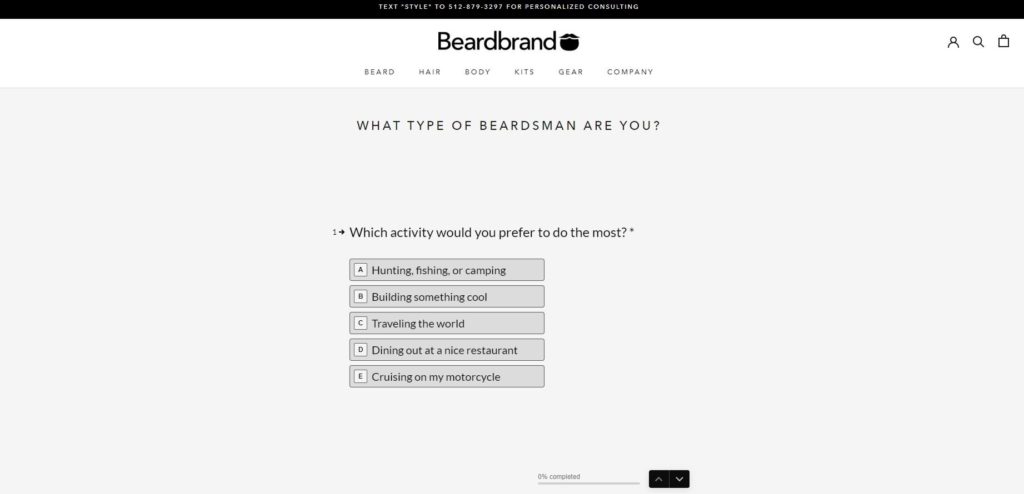
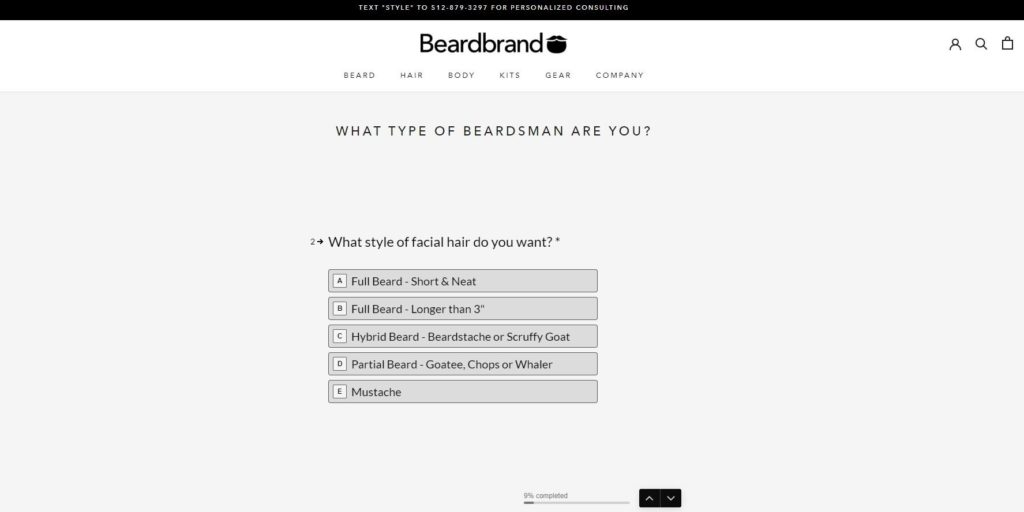
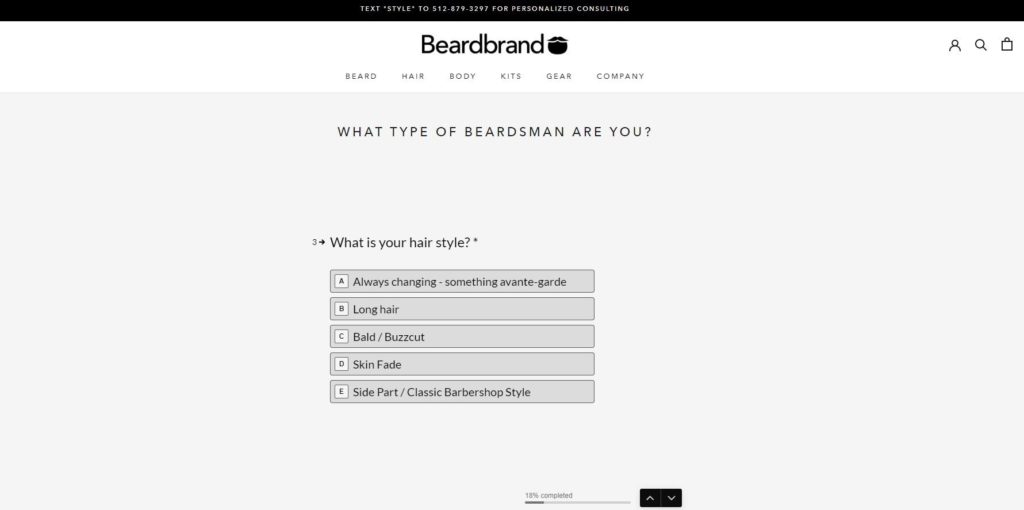
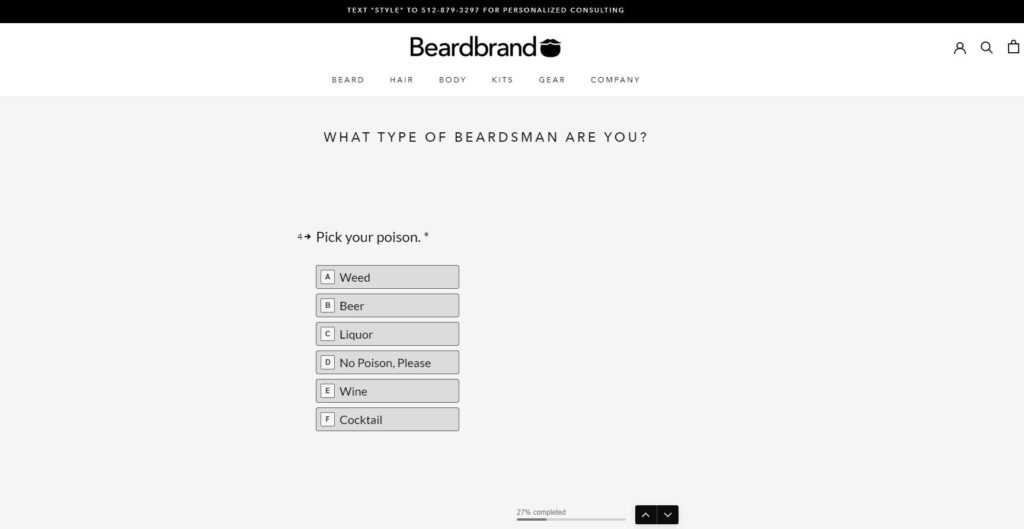
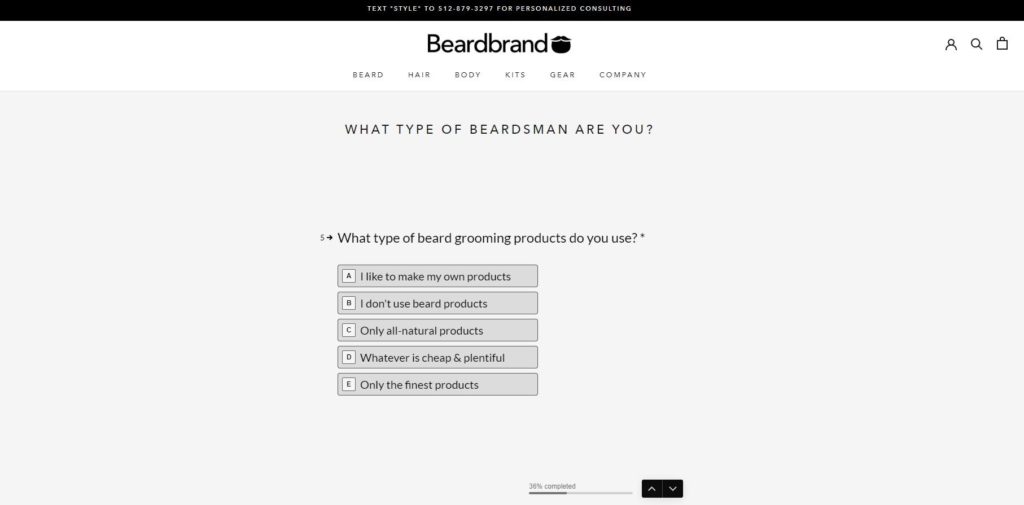
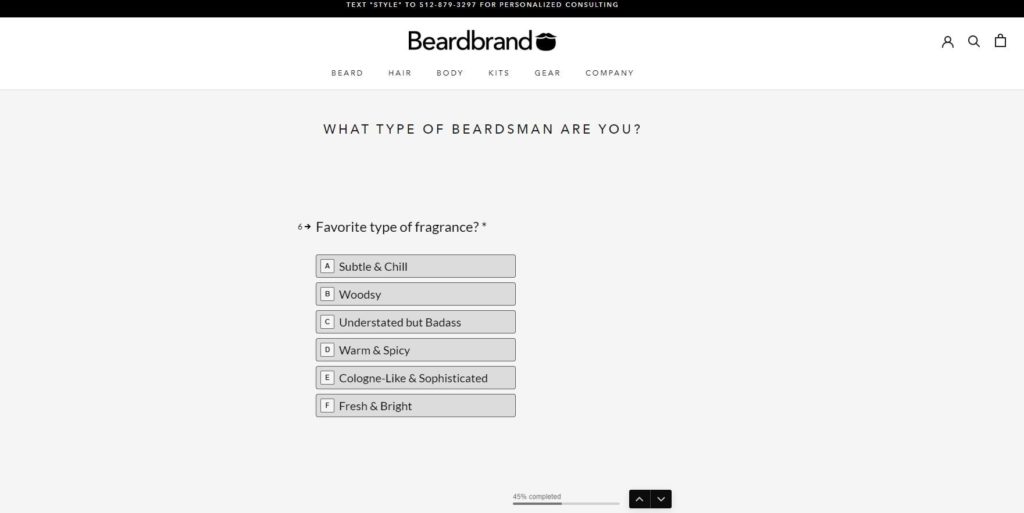
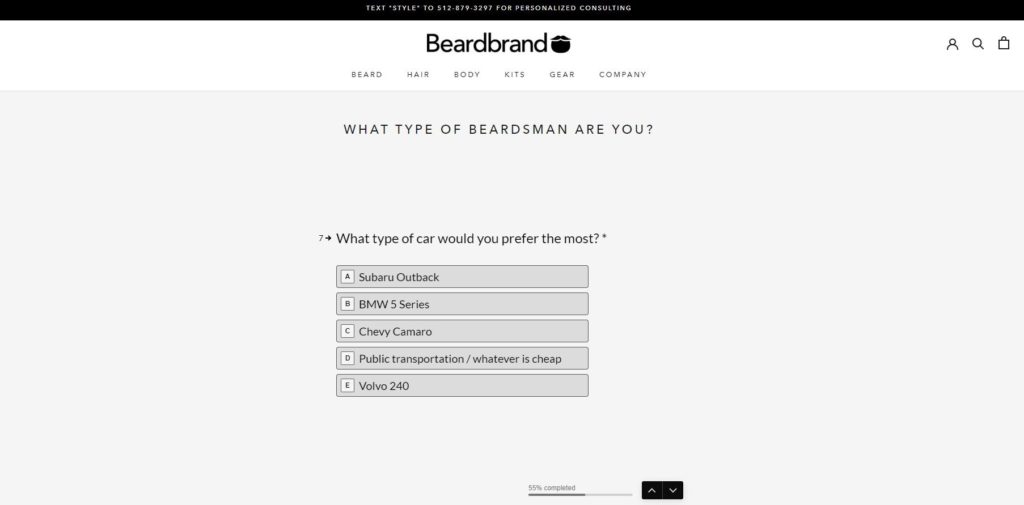
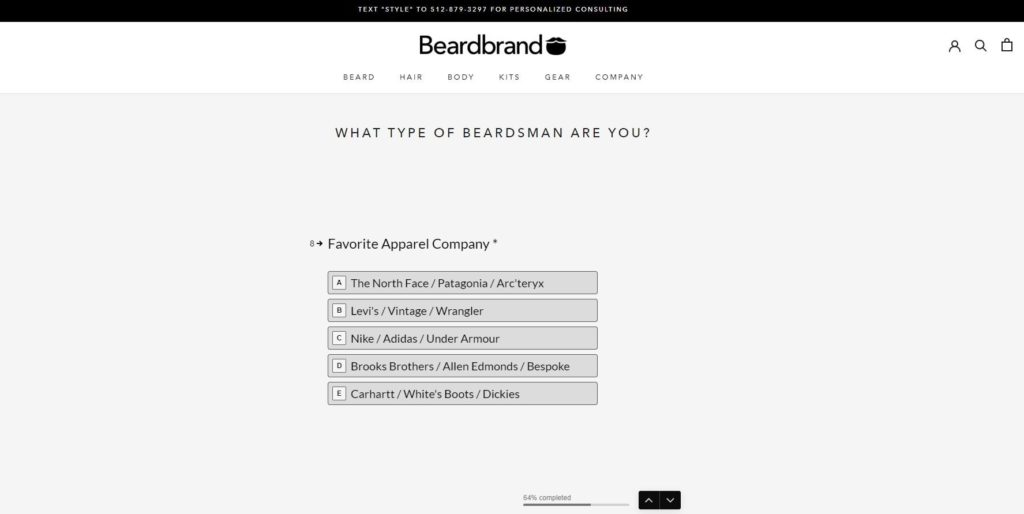
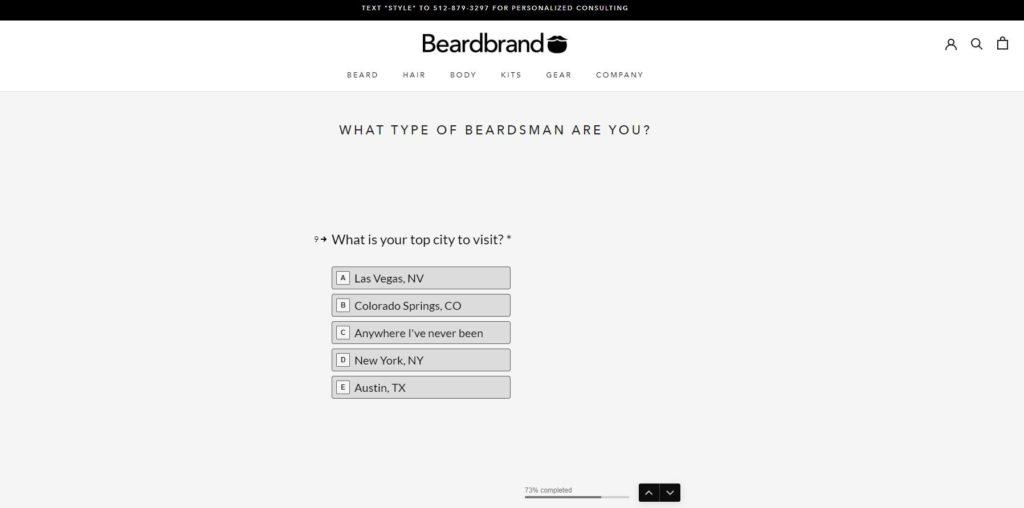
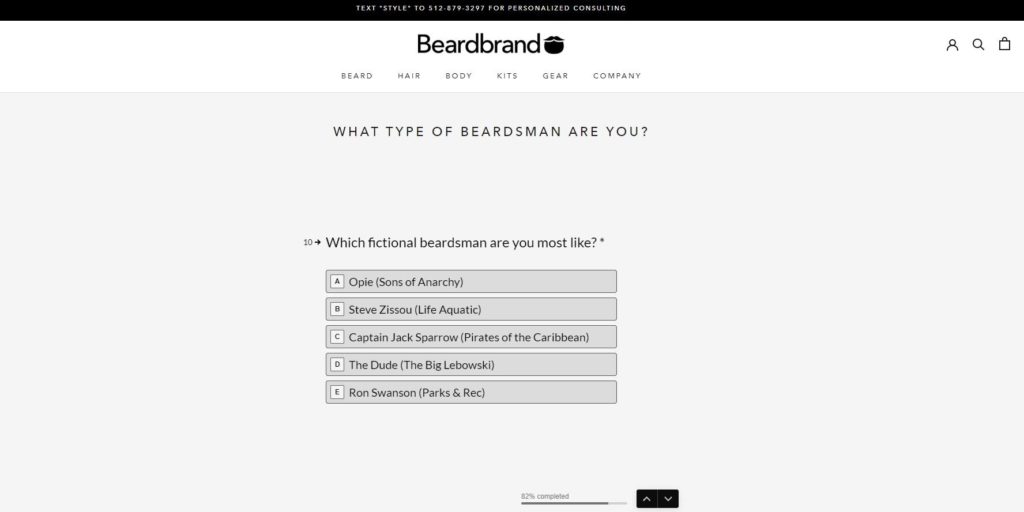
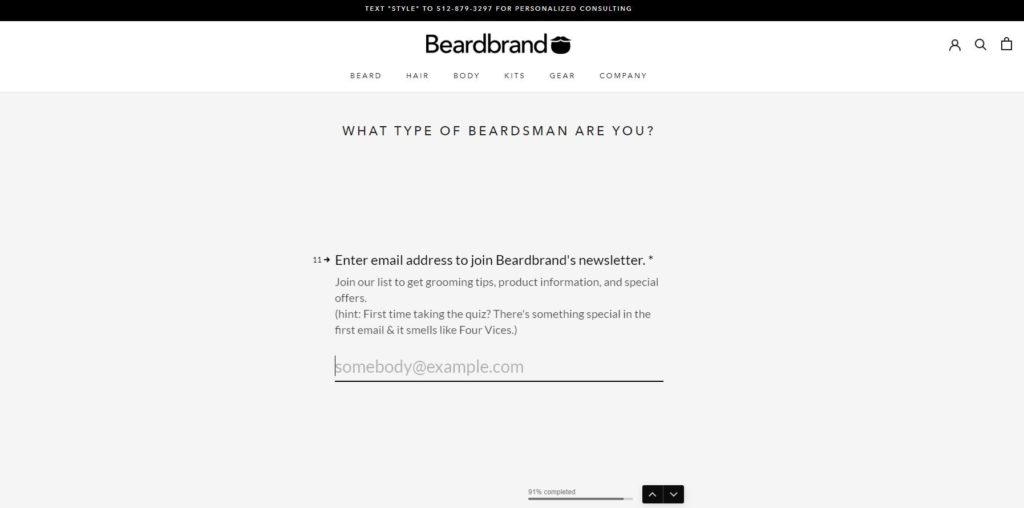
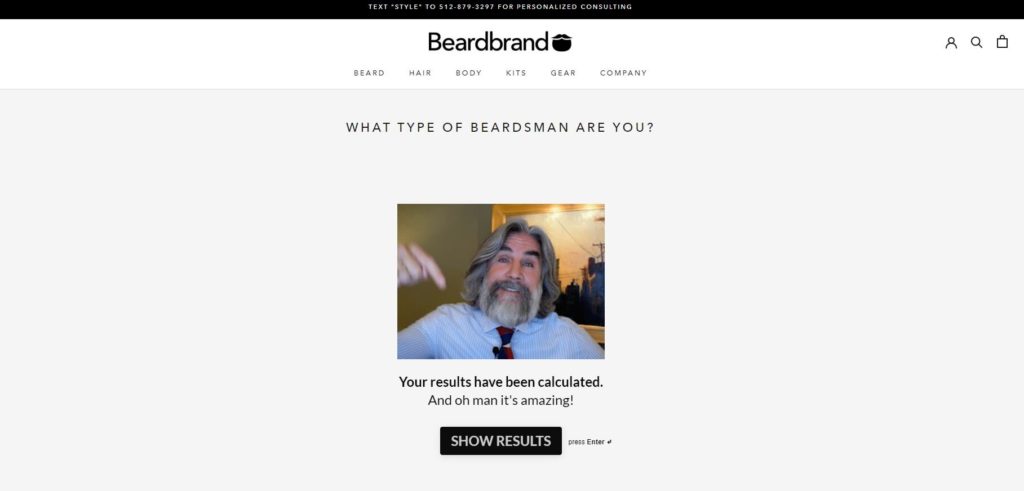
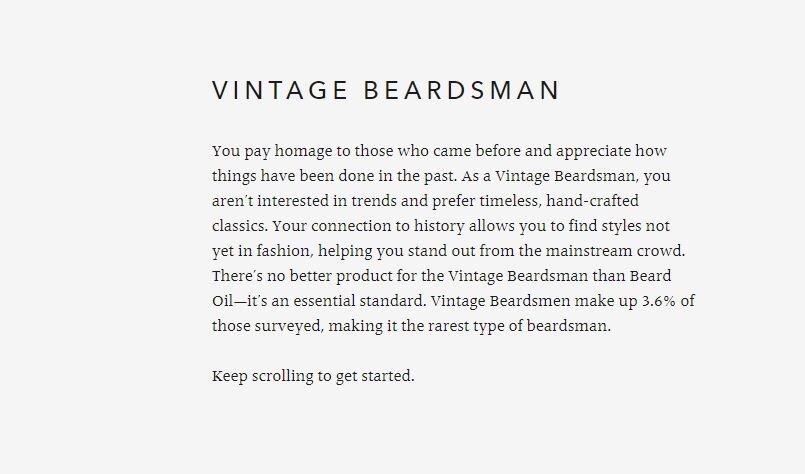
Beardbrand is a male grooming products company that sells beard oils, styling balms, shampoos, and more. It’s a company that has invested heavily into its brand, with 1.6 million subscribers to its YouTube channel and more than 116k Facebook fans.
Compared to The Pillow Guy and Helix Sleep, Beardbrand’s quiz is less functional and more entertaining and lighthearted. There are 10 questions, and users must enter their emails to find out what type of beardsman they are based on their responses.
The quiz format fits Beardbrand well in that it’s more of a lifestyle brand versus a strict consumer products company. So it stands to reason that they would add more personality into the quiz.
That said, the responses to the quiz still can be used to build audience cohorts for custom remarketing campaigns. Imagine that Beardbrand discovers that users who are categorized as “Vintage Beardsmen” convert at a rate 3X as high as any other segment? That could inform Beardbrand’s product, content, and marketing strategy.
Proven Skincare
Some companies use quizzes as a marketing tactic. For other companies, their quizzes are foundational to their brands.
Proven Skincare is a perfect example. A custom skincare company, Proven Skincare created a 3-minute Skintelligence Quiz™ with 30+ questions to help recommend ingredients that match their users’ skin needs.
A few things stand out about their quiz:
- There are zero exit paths on the quiz aside from closing your browser or switching tabs. They keep their funnel tight.
- The length of the quiz shows that they care more about qualified leads than volume. They want customers who take their skincare seriously.
- The company supposedly uses artificial intelligence to match people to ingredients that will work best for them by referencing a 21,483-person database called The Skin Genome Project™. This is taking personalization to the next level.
- The amount of data collected includes not only user preferences, but location data and email contact info. Plus, users must create an account to view their quiz results.
For most companies, quizzes this length would be counterproductive. But for Proven Skincare, this questionnaire is an integral part of their value proposition, so it makes sense.


